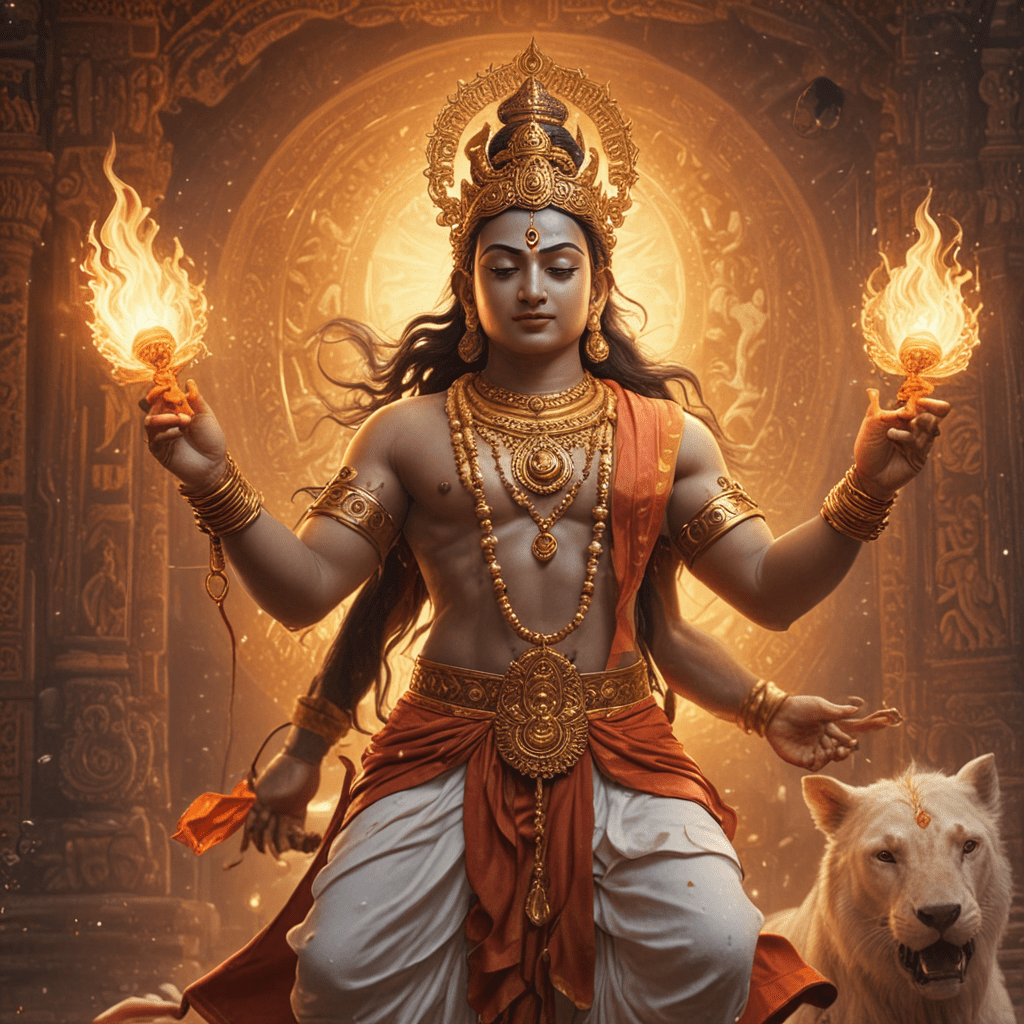Introduction: Karma in Hindu Mythology
Karma, a Sanskrit word meaning "action," is a fundamental concept in Hindu mythology, encompassing the principle that one's actions, both good and bad, determine their fate and future experiences. According to Hindu belief, karma is an immutable law of nature that governs all aspects of life, influencing everything from one's current circumstances to their destiny in future incarnations.
The Three Types of Karma
Hindu mythology recognizes three distinct types of karma:
Sanchita Karma: The cumulative result of all actions performed during one's present and past lives, stored within the soul as a seed of potential.
Prarabdha Karma: The portion of Sanchita Karma that determines the specific experiences and events of one's current life. It is the karma that has come to fruition and can be modified to some extent through conscious actions.
Kriyamana Karma: The actions and choices one makes in the present moment, which shape their future and contribute to their Sanchita Karma.
The Law of Karma: An Action, a Reaction
Karma operates on the principle of action and reaction, where every deed, thought, or word has corresponding consequences. Good actions generate positive karma, leading to favorable experiences and conditions, while negative actions result in negative karma, entailing challenges and obstacles. This cycle of cause and effect perpetuates throughout all aspects of life.
The Cycle of Samsara: Birth, Death, and Rebirth
Karma plays a pivotal role in the cycle of Samsara, the continuous process of birth, death, and rebirth. The accumulation of good or bad karma determines the form and circumstances of one's next incarnation. Positive karma leads to favorable rebirth, while negative karma may result in undesirable conditions or lower life forms.
The Role of Sanchita Karma
Sanchita Karma serves as a reservoir of potential experiences that can manifest in future lives. It can be purified through spiritual practices, such as meditation and selfless service, to mitigate its impact and lead to a more favorable destiny. Sanchita Karma also includes the results of past actions that have yet to fully come to fruition.
Prarabdha Karma: The Karma that Determines Our Current Life
Prarabdha Karma is the portion of Sanchita Karma that has ripened and is directly responsible for our current life's experiences. It determines our physical body, circumstances, family, environment, and the major events that shape our life. While some aspects of Prarabdha Karma may be unchangeable, it is possible to mitigate its effects through conscious actions and spiritual practices.
The Mythical Deities of Karma
Hindu mythology attributes the concept of Karma to various deities who oversee its workings and consequences:
Yama, the Lord of Death and Justice
Yama, the god of death, is depicted as the dispenser of justice, who judges the departed based on their Karma and decides their fate in the afterlife. His realm is known as Naraka, where sinners are punished according to their misdeeds.
Chitragupta, the Recorder of Karma
Chitragupta is the celestial scribe who meticulously records every action, word, and thought of all beings. His records serve as the basis for Yama's judgments and the determination of one's Karma.
Conclusion: The Enduring Legacy of Karma
Karma is a fundamental belief in Hindu mythology that holds individuals accountable for their actions and shapes their destiny. It emphasizes the importance of ethical conduct and righteous living, promoting a sense of personal responsibility and compassion. The concept of Karma continues to influence Hindu society and spirituality, providing a framework for understanding the complexities of life and the interconnectedness of all beings.
FAQs
Q: Can Karma be changed?
A: While the past cannot be altered, it is possible to mitigate the effects of negative Karma through positive actions, spiritual practices, and sincere remorse.
Q: What is the purpose of Karma?
A: Karma serves as a tool for spiritual evolution, teaching us the consequences of our actions and guiding us toward righteous conduct.
Q: How can I improve my Karma?
A: By performing selfless acts, practicing mindfulness, and cultivating positive thoughts and intentions, we can accumulate positive Karma and create a more favorable destiny.



